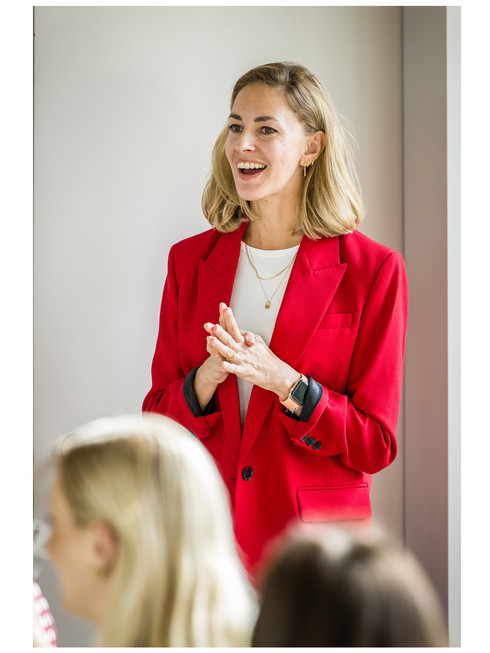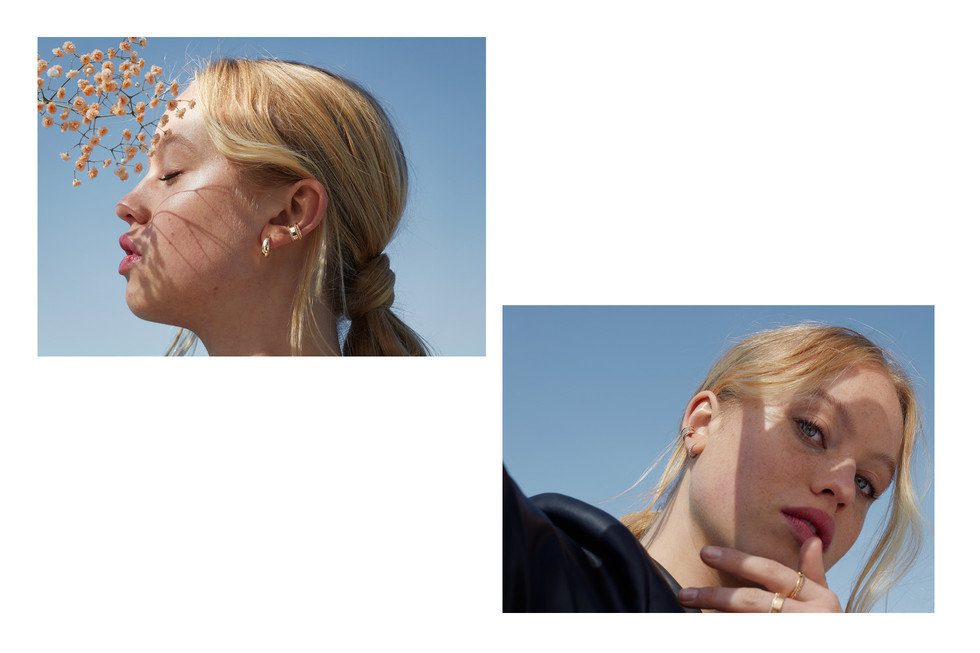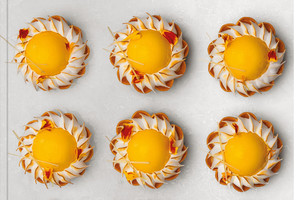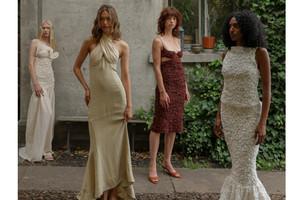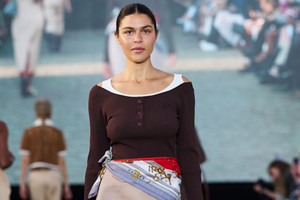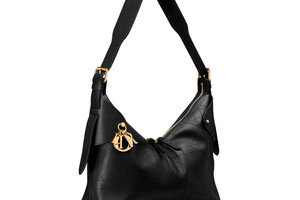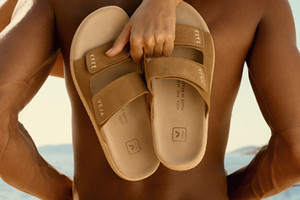An Interview With Akinds Co-Founder Anna Wallander
Written by Josie McNeill by Josie McNeillNestled into Drakens Grand, an alley in the old town of Gamla Stan, lies Akind–a sustainably and ethically sourced fine jewelry company.
Anna Wallander, a native to Sweden, co-founded the brand in 2019 when she moved back to Stockholm after living and working in the legal field in Dubai. Eager to branch out after returning home, she longed to pursue something more business related instead of just “reviewing legal papers.”
So what initially drew you to the jewelry industry?
I had nothing to do with jewelry before. I had a completely different background. Actually, it was just a random conversation in the middle of the situation when I came back to Sweden, and I was like, okay, I want to do something more, something else, and I want to be my own. I had a conversation about the jewelry business, just in general, especially in North America. We saw some brands that were quite interesting from Canada and the US, and we're like, well, they are, you know, on the forefront with their digital business model, embracing more of the sustainability part, and being more transparent, etc. So I was looking back to Europe, and I couldn't see any of it happening here. That started to put me into a lot of reading, and when I then read up about this really heavy diamond mining industry, and then looking at the European market, I noticed there's a huge space. There's a huge, empty space here with room for something new to take place and something good to be done. Because it's a very dirty industry.
Do you design yourself or do you just run the business side, mostly?
Mostly the business side, but of course as an entrepreneur from the beginning, you've done everything on your own. There's nothing I haven't done, but we have an in-house designer and she has been with us since the very beginning. So even though I had a vision of the design and all that, she is the talent that actually draws everything. And I can't do that. She's great, and she's with us still, and she is the designer in the team. Now and then I sit with her in deciding together what we want to do and what kind of shapes and forms and then she draws different examples.
How did Akind come together as a company?
So it was right there when I got inspired by North American companies and felt that Europe was really far behind. And when I dug into all these reports that I came across, I realized that it's like a heavy mining industry, and I wanted to create a brand. I just saw the opportunity of a brand that was embracing this in full because, even from the North American brand, I saw it wasn't like there was super dedication for sustainability. People are touching upon it but it's really hard to be sustainable. And it's such a greenwashing word even today.
But I read up on lab grown diamonds and that was also interesting because it was starting to grow fast in the US, but was still really far behind here. People are new to the concept, but now in the last two, three years, some quite big moves have happened also in Europe. But there is also the recycled gold part. Not all gold is recycled. It is quite hard to get a whole lot of 100% recycled, so it's been a little bit of a mission of course. And that's how the company came together. I got fascinated about everything that we can do. We created a team, so we're three co-founders. One is a graphic designer with a branding background. The other one is a serial entrepreneur, and then it's me with a legal background. So no jewelry background.
So you said your diamonds are grown in labs. Do you want to talk more about that and why you decided to start instead of the mining one?
Lab grown diamonds just made so much sense at the very beginning because the lab grown diamonds are grown in laboratories that mimic the Earth or the soil underneath the earth where a diamond is created under high heat and high pressure underneath. I mean, it takes millions of years for it to grow and become substantially big enough for it to be worthwhile to take out or extract. Whereas in the laboratory, they have worked for a century to get the right technique in place. It's been a really long process. I feel like when you have these above ground diamonds that are used without extracting all these earth or soil and digging up these huge like City Halls and using poor materials or substances in order to get into the caves, then I would prefer everyday and week to use a laboratory. It's the same thing it's 100% Carbon both ways. So it's a real diamond, not a synthetic etc. And it's having some carbon pressed under the same.
Do they look any different?
You can't tell the difference. The only thing you can see is that some diamonds or most diamonds, have some particles or blemishes etc, which have an origin from wherever they were extracted. So for example, if something like diamond comes from South Africa and has some blemishes that you notice through a microscope, and that diamond, you can sort of track it to their soil because it's a different soil than it is in Peru or whatever. But a diamonds’ value from a mine is higher the less blemishes and particles it has, so you don't want that. In the laboratory, it's clinically clean more or less so you don't have that sort of blemishes so that's the difference and that also raises the quality of the diamonds in laboratories.
And then where do you see the diamond industry going in the future? Do you think it will become more sustainable?
100%. I mean, I think first of all, right now, lab grown diamonds have about 10 plus percent of the entire revenue of diamonds. About five years ago, it was 1%. So it's a huge growth and then of course you have Russia and all that which is now like strangled a little bit because the world is saying no to importing from them. But I'm just saying that that also limits others. So yes, the world is becoming more sustainable in terms of diamonds. And I think there are many reasons. Lab grown diamonds are about 30% cheaper than mined diamonds. So there are these consumers that really care. But then you also have the consumers that are also watching their wallet and seeing if they can get more stone for the money. So there are many benefits, I would say, but I do think lab grown diamonds are going to hold value because of the technique as it is today. It's not like you can fine tune it so much more now. So it is going to be a more sustainable diamond industry, I would say. So that's good.
When you were developing the Akind of company, what was the first collection you put out?
The black diamond ring. This is one of the first actual samples we did. And it comes with a white diamond as well.
Oh cool. And then how do you think the designs have evolved since the company first started?
I think we have a quite typical Akind design, which is pretty delicate jewelry stacked together. Minimalist feeling. I think and we've really tried to keep it that way. But we are coming out with more and more bolder pieces. I think it's part of a trend, even though we are a timeless jewelry brand. You can have a timeless white t-shirt but sometimes the sleeves are just a bit shorter and sometimes they're longer. It's just like you know, we are a white t-shirt because our products are owned forever. So we can't go insane and crazy with the fashion. But still we're moving for bolder parts. Then we are going to add more gemstones. We are going to go a little bit more extravagant with our design and that's been actually a personal movement that I want to see the brand taking a stronger position in its design. We have a good basic, and I think we have said let's continue to produce 25% basics, but then like a layer of a different metal, which I would like to see more. Not crazy design, but it's a little bit braver. And then we have a small layer on the top which is like bigger diamonds and some costlier items.
Is there an item that is most popular right now?
There's a drop pendant which we launched a year and a half ago. It has like a drop. It is super popular.
What do you think is special about designing jewelry that you can see people wear?
It's so nice. because people really have put a lot of emotions into it. So we are actually a company that sells mostly to people that buy for themselves. And we're promoting that too. Like buy it for yourself. Don't wait for the present. We don't want jewelry to be necessarily just gifting. But also, if you buy whatever shoes for a couple of 100 euros, then you can buy this as in like treating yourself. The thing with jewelry, even for the customers that are buying for themselves, they always have an occasion. Some of them of course go spontaneously, especially with these earrings and stuff because they're a little bit lower in price. But then they want this necklace and it's like “oh I deserve it because of this graduation or promotion.” So there's a lot of happiness around buying jewelry. And we see that because we have customers coming here every day to buy jewelry. And even when a couple comes in and then they, you know, try to find their jewelry for their engagement, there’s a really really good vibe around it. There's a less stressful vibe and I think those are because we're dealing with fine jewelry or dealing with only gold and diamonds. So everything can last forever. So it's a lot of quality and a lot of you know, it needs to be timeless. It needs to look good on you in 20 years as well. And I think that makes it an occasion somehow and that's quite lovely actually.
How would you describe the Akinds customer?
The Akinds customer is a conscious woman who is, you know, quite aware of and it's not does not want to compromise between sustainability, pricing and quality. They want to have a good quality and having consciousness in the product, how sustainable but somehow there's a consciousness behind it. And then they want to get what I pay for. They also understand the price points because it's real golden diamonds. So our customers I would say has never Yeah, they're quite aware. And ages between 25 to 45/50. And the sweet spot would be between 30 to 45. That's when you're also starting to make a little bit of money because you've done a little bit of your career. So you’re starting to have some money left over and wanting to buy yourself something nicer. That's our core customer, and they are I would say very modern women. We also are launching a men's collection now. It's not a new collection, we're just launching your website because we have a lot of products that are both men and women.
Besides a men’s line and more bold designs, where else do you see the brand going in the future?
It's going to get big, I hope. I'm very proud of the full DNA of the brand. I really stand behind what we are and what we do. I want us to grow into and become a major brand. I want us to be on the mind of every color jewelry customer, but I want to do it in the right way. I'm not looking to do something like a massive explosion just to sell. I really want to be the brand that lasts. 50 years, if you were our drop pendant. It should be vintage. It's like “I got this from my mother, and it's an Akind necklace.” That will be lovely. That's what I want it to be. I want us to be true to the brand for a long time.

